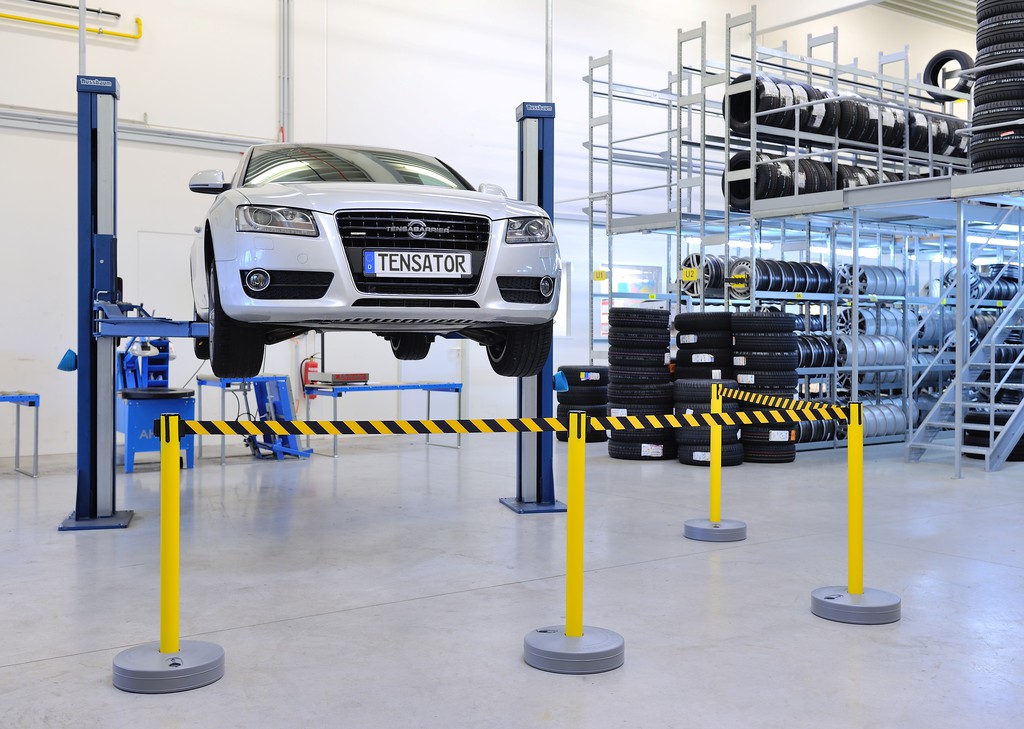
Kelly Rose
Editor

Kelly Rose
Editor
Figures from the charity Scope show that there are there are currently 3.4 million disabled workers in the UK. Companies have a legal obligation to make ‘reasonable adjustments’ for employees who have a disability – though some are going further by actively creating accessible workplaces with the latest safety technology, explains Joanne Turner, group head of marketing at people management specialist Tensatorâ.
In the UK, the excitement that surrounded last summer’s Paralympic Games was testament to just how much public perceptions around disability have changed in recent years. Team GB’s performance was nothing short of inspirational and you’d be forgiven for thinking that equality has now been achieved across all areas of life.
But while good progress has been made over the past decade, there are still far too many people who are unjustifiably put at a disadvantage, notably in employment. Sometimes it is not a disability that prevents someone from working, but the fact that not enough is being done to accommodate their requirements.
According to Scope’s research, disabled people are more than twice as likely to be unemployed than those who are not. Aside from the ethical and legal concerns this raises, businesses and the wider economy are losing out by not recruiting and retaining those who have a disability. The charity goes on to say that just a 10 per cent rise in employment within this demographic would contribute an additional £12 billion to the treasury by 2030.
Furthermore, the Health and Safety Executive (HSE) says that safety is cited as a reason why some employers do not take on a person with a disability, even though there are ‘very few cases’ where groups of workers can be legally excluded. There is a misconception that potentially hazardous places such as factories, warehouses and building sites are unsuitable for those with mobility challenges – however forward-thinking employers are increasingly dispelling these myths.
Taking on a disabled employee brings a host of benefits, not just to that person who is able to live more independently, but also to the wider workforce. Valuing diversity frequently attracts the most talented candidates and creates a culture of inclusivity that keeps teams motivated.
Increasingly, new technology is helping to make workplaces both safer and more accessible for everyone. It is often necessary to cordon off areas where maintenance work is being carried out or to warn members of the public about a possible danger, but it should not create obstacles. The Tensabarrier, for example, is commonly used in the busiest points of premises to improve navigation, so we developed a new base, with a rounded, lower profile and low leading edges. This enables wheelchair users who are visiting to pass over the base easily, and reduces the risk of trips and falls for everyone, particularly those with sight or mobility issues.
Accessibility is essential when taking on a disabled person but is can also become a priority if an existing staff member sustains injuries in an accident or is diagnosed with a health condition. As well as fulfilling their legal duties, many employers do not want to lose an experienced employee so will do everything they can to support them in their role. It could be that adjustments need to be implemented quickly so firms must work closely with all workers, while ensuring they are up-to-date on the latest legislation.
Perhaps understandably, some business owners and managers are concerned about the cost of making workplaces more accessible. However, it is worth remembering that a company may be eligible for a government grant through the Access to Work scheme, which can help fund adjustments. Sometimes change can be as simple as offering flexible working hours or providing large text documents, which require little investment.
Thankfully, being disabled no longer prevents people getting or staying in a job but clearly more needs to be done to ensure everyone enjoys the same opportunities. Employers who invest in accessibility create inclusive and safe working environments for all, regardless of whether someone has a disability or not. Sometimes just a small level of investment is required, but the reward of a highly motivated team can be enormous.
The latest government guidelines on employing people with disabilities and health conditions can be found at www.gov.uk.
For more details on Tensatorâ, visit www.tensatorgroup.com



Danbury Court
Linford Wood
Milton Keynes
MK14 6TS
UNITED KINGDOM
01908 684600